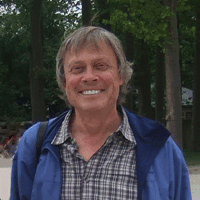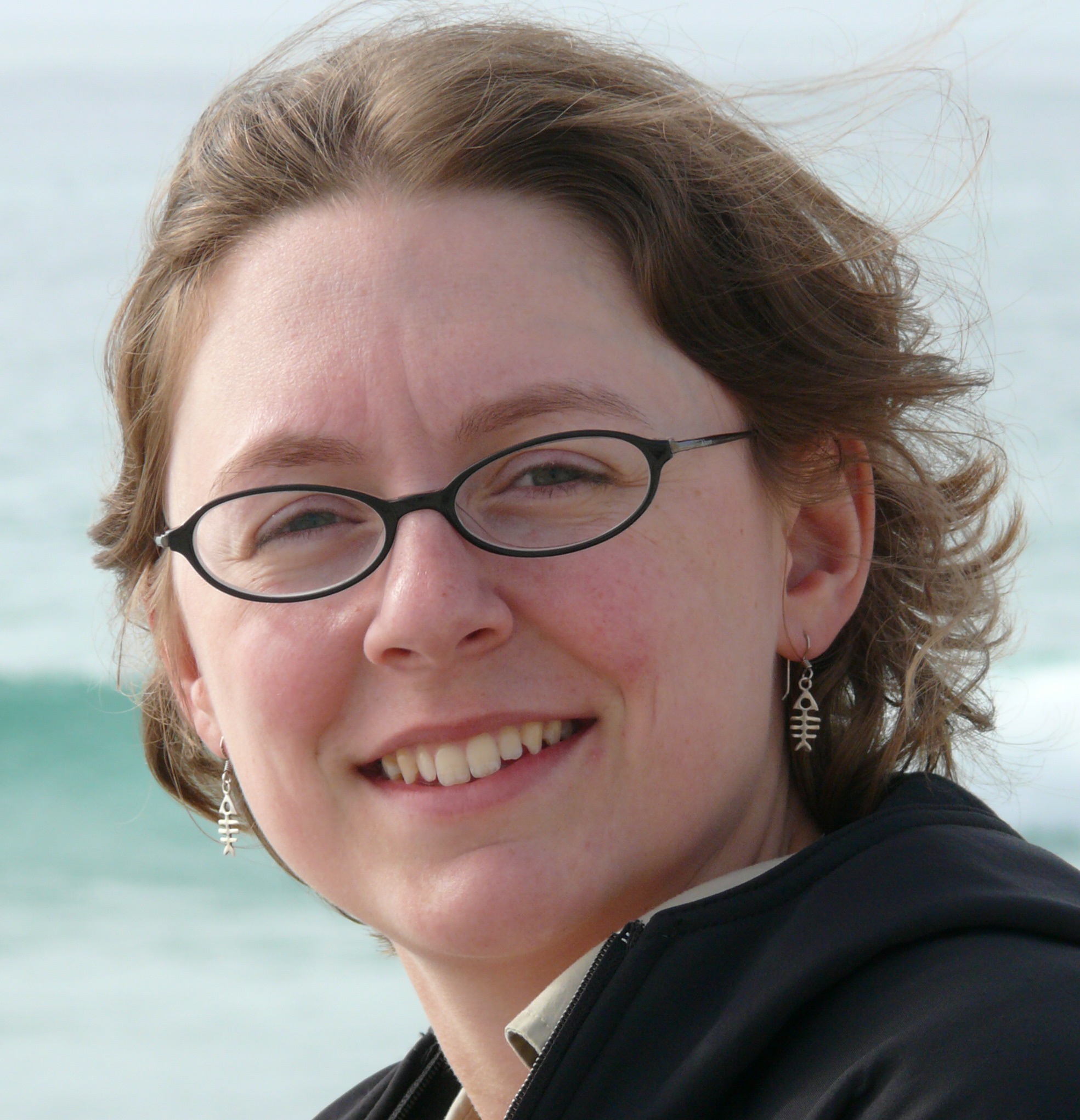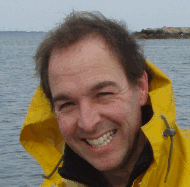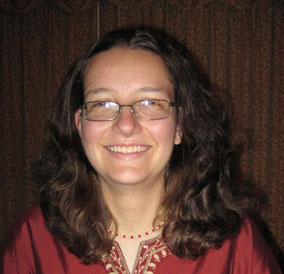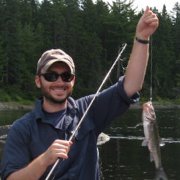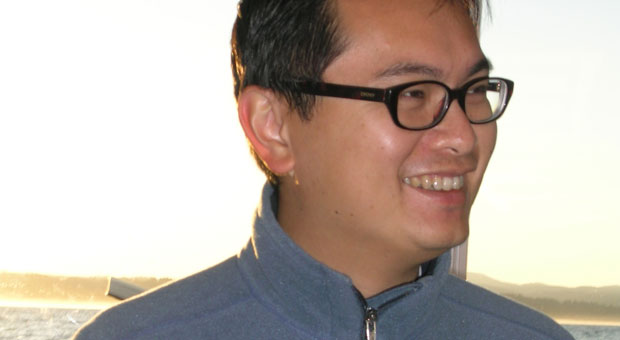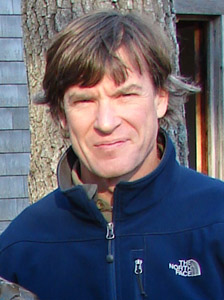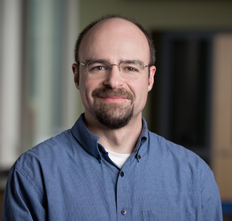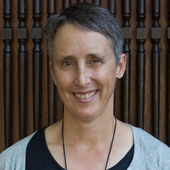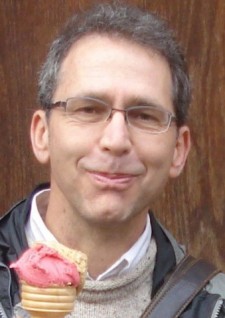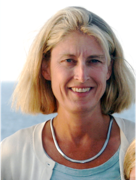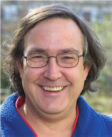Current Lab Staff and Students
Dr. Robert W. Howarth
David R. Atkinson Professor of Ecology & Evolutionary Biology
Link to CV
E-mail: howarth@cornell.edu
Office:(607) 255-6175
Bob is an Earth systems scientist, ecosystem biologist, and biogeochemist. He has worked extensively on environmental issues related to human-induced changes in the sulfur, nitrogen, phosphorus, and carbon cycles, the impacts of global climate change, methane emissions as a contributor to climate change, and the interaction of energy systems and the environment. He is one of the most widely cited environmental scientists in the world, with his papers cited more than 75,000 times in other peer-reviewed papers. Bob is the Founding Editor of the journal "Biogeochemistry" and was Editor-in-Chief for over 20 years. He also served as Editor-in-Chief of "Limnology & Oceanography" for 5 years and is currently co-Editor-in-Chief of OLAR, the Oceans-Land-Atmosphere Research journal. Previously, he co-chaired the International SCOPE Nitrogen Project (1992-2002), chaired the National Academy of Sciences Committee on Causes and Management of Coastal Eutrophication (1998-2000), coordinated the nutrient responses chapter for the Millennium Ecosystem Assessment (2002-2005), chaired the International SCOPE Biofuels Project (2007-2010), and served as President of the Coastal & Estuarine Research Federation (2007-2009). In 2011, Time Magazine named Bob as one of 50 "People who Matter" for his research on the greenhouse gas footprint of shale gas. Currently, Bob serves as a member of the New York State Climate Action Council, the group charged by law to implement the ambitious greenhouse-gas reduction targets of the New York climate law passed in 2019.
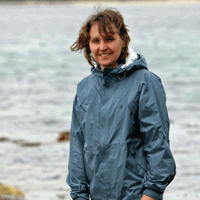
Dr. Roxanne Marino
Senior Research Associate & Lab Manager
Ecology & Evolutionary Biology
Link to CV
E-mail: rmm3@cornell.edu
Office: (607) 255-3572
Roxanne has worked on a wide range of research topics and collaborations over the past 25 years at Cornell, and currently is also Visiting Investigator at the Marine Biological laboratory in Woods Hole, MA. Her primary research foci and related interests include:
- controls on biological nitrogen fixation
- interactions of major nutrient and trace element biogeochemistry in aquatic and terrestrial ecosystems
- near-source deposition of atmospheric gaseous nitrogen
- sediment and aquatic phosphorus biogeochemistry
- application of research results to science education, public outreach, and policy to address ecological problems
In addition to her work at Cornell, Roxanne has been very active in local government, serving as a member of the Tompkins County Water Resources Board and as a Town Board member and as Town Supervisor in Ulysses (Tompkins County, NY).
Dennis Swaney
Coordinator of Modeling
E311 Corson Hall
Link to CV
E-mail: dps1@cornell.edu
Office: (607) 255-3572
I am lead mathematical modeler of environmental systems in the lab. My recent work focuses on nutrient accounting in large watersheds and the relationship of NANI (Net Anthropogenic Nitrogen Inputs) to riverine nitrogen fluxes. Other research has included developing methods of estimating ecosystem metabolism in estuaries, modelling nutrient transport through watersheds to the coast, and modelling ecological responses of watersheds and coastal ecosystems to climate and land use changes. Additionally, I am interested in the general problem of transport processes and dispersal in the environment.
I served on the Scientific Steering Committee of the LOICZ (Land Ocean Interactions in the Coastal Zone) program of the IGBP from 2005-2011, and have been involved with developing biogeochemical budgets of coastal systems in the Baltic and elsewhere. I continue to work with new applications of biogeochemical budgets and nutrient accounting methodologies, and the development of quantitative methods to evaluate human impacts on coastal systems and their watersheds. I have served as an associate editor of the journal Estuaries and Coasts since August 2012.
Tom Butler
Visiting Fellow
Institute of Ecosystem Studies
211 Rice Hall
E-mail: tjb2@cornell.edu
Office: (607) 255-3580
I am a visiting fellow at Cornell and Site Manager for the Cary Institute of Ecosystem Studies (in Millbrook NY). I have maintained and operated a NADP/Airmon rainfall chemistry site that has been in operation for over 35 years and at the same location and a CASTNET Dry Deposition site since 1987. Both the wet and dry deposition sites have some of the longest records in precipitation chemistry, dry deposition and air quality in the US.
I have been affiliated with the Howarth Lab since its inception at Cornell. The impact of changing emissions on trends in atmospheric depostion and air quality (SO2 and NOx emissions and their deposition products, as well as mercury and ozone) has been a major focus of my work. Currently I am focused on quantifying the importance of ammonia emissions and deposition as part of the total N input to areas of the eastern US. Past work has also included metabolism and biogeochemistry of estuarine ecosystems.
Past Students
Melanie Hayn
PhD in Natural Resources in 2025
E-mail: mkh23@cornell.edu
Currently: Postdoctoral Researcher at the Marine Biological Laboratory (as of 11/20/2025)
My work centers around West Falmouth Harbor, a shallow estuary undergoing rapid eutrophication as a result of dramatically increased nitrogen loading. I am interested in how human activities impact the landscape in the coastal zone. In particular, I'm interested in using spatial statistics and GIS in conjunction with traditional chemical and physical data to study whole-system effects of nutrient enrichment on water quality and nutrient cycling dynamics of estuarine and near-shore ecosystems.

Katherine Haviland
PhD in Natural Resources in 2023
E-mail: kah334@cornell.edu
As of fall 2017, I am a first year M.Sc. student in Natural Resources, hoping to continue on to a Ph.D. My current research involves coupled C- and S-cycling in estuarine sediments and the interactions between sediment biogeochemistry and ecosystem function in West Falmouth Harbor's seagrass meadows. I graduated from the University of Maryland, College Park with a B.S. in Geographical Sciences, and became interested in pursuing estuarine biogeochemistry while performing undergraduate research on the northern Chesapeake Bay.
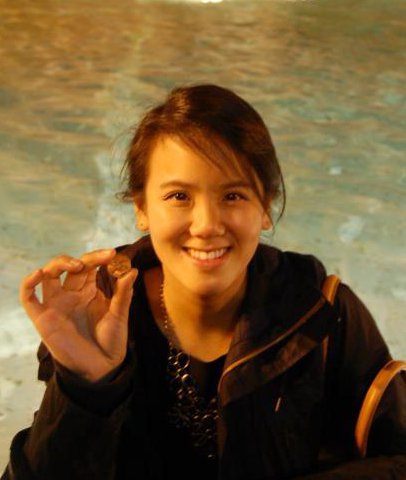
Michelle Wong
Ph.D. in Ecology and Evolutionary Biology
E-mail: myw8@cornell.edu
I am a PhD candidate in the Department of Ecology and Evolutionary Biology and a student participant in IGERT the Cross-Scale Biogeochemistry and Climate. I graduated from the University of California, Berkeley with a B.S. in Molecular Environmental Biology and a B.A. in Sociology. I have worked as a research and field technician at University of California, Berkeley and an environmental scientist at the California Environmental Protection Agency.
Charles Ouellette
M.S. in Ecology and Evolutionary Biology in 2016
Currently: Assistant Professor at West Point Military Academy (as of 2/2019)
I am an active duty Army officer studying for an M.S. in Ecology in preparation for a teaching assignment at West Point. I am broadly interested in global change as a likely driver of conflict and social instability, particularly with respect to impaired aquatic ecosystem function and the services they provide. My current M.S. thesis research focuses on the biogeochemistry of nitrogen and phosphorus at a typical New York agricultural setting in watershed linked to the Chesapeake Bay.
Neil D. Bettez
Ph.D. in Ecology and Evolutionary Biology: 2009
Currently: Visiting Scientist, Cary Institute of Ecosystems Studies; Supervisor, Town of New Paltz (as of 2/2019)
Dissertation: Impacts of chronic low level nitrogen deposition along a roadside deposition gradient on forest and estuarine nitrogen loading
"Dr. Bettez's research focuses on whole-system ecological processes, particularly on nitrogen (N) biogeochemistry in human dominated systems. Excess N has been shown to contribute to the declining health of forests and lakes because of acid rain and the eutrophication of coastal rivers and estuaries because of increased N loading. In the United States, especially in urban areas where more than three quarters of the population lives, a significant portion of this N is from fossil fuel combustion. My current research investigates the fluxes and transformations within and among terrestrial and aquatic ecosystems in the city of Baltimore."
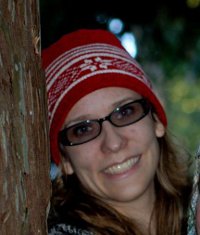
Ursula Mahl
M.S. in Natural Resources: 2009
Currently: Lab Manager, Tank Laboratory, University of Notre Dame (as of 2/2019)
Thesis: Effects of the density of co-occuring bivalves Mya arenaria) and deep-burrowing polychaetes (Nereis virens) on benthic fluxes and the concentrations of ammonium and soluble sulfides in sediment porewater
Caroline Turner
M.S. in Ecology and Evolutionary Biology: 2008
Currently: NASA Postdoc at University of Pittsburgh (as of 2/2019)
Thesis: Influence of Zebra and Quagga Mussel Invasion on Benthic Nutrient and Oxygen Dynamics
On her Ph.D. work at Michigan State University with Dr. Richard Lenski:
My research interests are in examining interactions between
evolutionary and ecological (especially ecosystem) processes. I am fascinated by the ways in which organsisms can shape both their biotic and abiotic
environment. As organisms evolve, their effects on ecosystems can change. In turn, these ecosystem changes can then affect further evolution. I study
ecological and evolutionary interactions in the Lenski lab's long-term evolution experiment with E. coli. This experiment has continued for over 20
years and more than 50,000 generations. I also study evolutionary and ecological interactions with evolving digital organisms using the AVIDA software system.
Jeff Walker
B.S. in Science of Earth Systems: 2006
Currently: Founder and Principal of Walker Environmental Research
Thesis: The Whole Ecosystem Metabolism of a Shallow Temperate Estuary
After finishing his undergraduate research in the Howarth/Marino lab, Jeff went on to get his Masters of Engineering from MIT and his Ph.D. in Environmental and Water Resources Engineering at Tufts.
Gretchen Gettel
Ph.D. in Ecology and Evolutionary Biology: 2006
Currently: Senior Lecturer in Aquatic Biogeochemistry
IHE Delft Institute for Water Education
Dissertation: Rates, importance, and controls of nitrogen fixation in oligotrophic Arctic lakes, Toolik, Alaska
After leaving Cornell, Gretchen went to the University of New Hampshire to do a post-doctoral projet in the Department of Natural Resources, and remained on as a Research Scientist in the Water Systems Analysis Group, Complex Systems Research Center. In 2010 she joined the department of Environmental Resources at UNESCO-IHE. Her research activities are focused on understanding the role of aquatic and wetland ecosystems in maintaining water quality in the context of land use and climate change.
Brian Roberts
Ph.D. in Ecology and Evolutionary Biology: 2004
Currently: Assistant Professor, Associate Director of Science, and REU Program Director at
Louisiana Universities Marine Consortium, DeFelice Marine Center
Dissertation: Assessing Diel respiration in pelagic ecosystems using oxygen stable isotopes: When do the highest rates occur and who is respiring under different light and nutrient regimes?
Roberts says "In our work, we seek to "open the black box" of ecosystems by attempting to understand the biotic and abiotic interactions occurring within them so we can better understand the factors that regulate important biological fluxes. Specifically, we have been involved in several projects studying the influence of particular species or communities at regulating ecosystem-scale processes [e.g. studying 1) the relative contribution of autotrophs and heterotrophs to ecosystem respiration and 2) the role of snails in both regulating periphyton communities as well as contributing to ecosystem-scale rates of nutrient cycling and respiration in stream ecosystems]."
Francis Chan
Ph.D. in Ecology and Evolutionary Biology: 2001
Currently: Assistant Research Professor at Oregon State University, Dept. of Zoology
Partnership for Interdisciplinary Studies of Coastal Oceans
Dissertation: Ecological controls on estuarine planktonic nitrogen-fixation: The roles of grazing and cross-ecosystem patterns in phytoplankton mortality
Francis's research focuses on the causes and consequences of changes to the biogeochemical cycles of marine ecosystems. His current work examines the factors that control the development of low oxygen zones in the sea and the effects that such zones have on marine organisms and the underlying chemical cycles that support ocean food webs.
William V. Sobczak
Ph.D. in Ecology and Evolutionary Biology: 1999
Currently: Professor of Biology, Holy Cross
Dissertation: Microbial metabolism of dissolved organic carbon in stream hyporheic zones
William describes his current research as following three paths: coupling existing forest-atmosphere hydrology and carbon flux research with new stream biogeochemistry research, understanding how organic matter in melting permafrost impacts coupled aquatic ecosystems and is transferred to the atmosphere and Arctic Ocean, and understanding the connections between urban river ecology and biogeochemistry in Worcester's Blackstone River and the urban stream syndrome.
Gregory Lewis
Ph.D. in Ecology and Evolutionary Biology: 1998
Currently: Professor of Biology, Furman (as of 1/2019)
Dissertation: Response of stream chemistry to forest insect defoliation on the Allegheny high plateau, Pennsylvania
Greg currently conducts research within the River Basins Research Initiative, and is interested in how land cover and human activity within watersheds influences stream and river ecosystems. He is especially interested in how land cover (both urban and rural) influences the biogeochemistry of elements such as nitrogen and carbon in watersheds in the piedmont and Blue Ridge regions of South Carolina. Although he focuses on patterns in stream chemistry, he also is interested in how air pollution (in both rain and dust) may enhance the supply of nitrogen and other elements to streams in urban watersheds.
Gail Steinhart
M.S. in Ecology and Evolutionary Biology: 1996
Currently: Research Librarian, Cornell University
Thesis: Nutrient limitation of primary production and nutrient deficiency in phytoplankton in
southern Chilean lakes
Gail Steinhart is Research Data & Environmental Sciences librarian at Albert R. Mann Library. Her interests are in research data curation and cyberscholarship. At Mann Library, she is responsible for developing and supporting new services for collecting and archiving research data, and serves as a library liaison for environmental science activities. She has also held the position of GIS librarian at Mann Library. She holds M.S. degrees in Library and Information Science (Syracuse University) and Ecology and Evolutionary Biology (Cornell University), and worked for nearly 15 years in environmental research before becoming a librarian.
Rebecca Schneider
Ph.D. in Ecology and Evolutionary Biology: 1994
Currently: Associate Professor, Cornell University
Dissertation: Environmental controls of plant species diversity in coastal plain pondshore communities
My program focuses on integrated, watershed-based, and sustainable water resource management in the face of climate change. My research, extension, and teaching all revolve around different facets of this topic. Currently, my primary research program is focused on how networks of roadside ditches that criss-cross watersheds contribute to flooding, droughts, and degraded water quality in downstream waters. A second effort is investigating how restoration of organic matter in wetland and terrestrial soils can help to improve hydrologic and biogeochemical functions.
Tim Crews
Ph.D. in Ecology and Evolutionary Biology: 1993
Currently: Director of Research and Research Ecologist
The Land Institute, Salina KS
Dissertation: Phosphorus regulation of net primary productivity in a traditional Mexican agroecosystem
In 2012 Tim left his position at Prescott College after 18 years and numerous accomplishments to conduct research at the Land Institute. He describes his current research broadly as the ecology of perennial polycultures. Tims specific research focuses on how prairie ecosystems maintain soil fertility, and how these insights can be applied to mixtures of perennial crops to minimize the need for fertilizer inputs.
Karen J. McGlathery
Ph.D. in Ecology and Evolutionary Biology: 1992
Currently: Professor, University of Virginia
Dissertation: Nutrient and herbivore influences on seagrass community dynamics
Karen's current research focuses on the biogeochemical controls of nutrient availability and on nutrient limitation of marine macrophytes (algae and seagrasses) in both temperate and tropical coastal ecosystems. This work involves field and laboratory investigations, and examines the direct linkage between macrophyte ecophysiology and processes at the community and ecosystem level. Active research projects include studies of macroalgal effects on nutrient dynamics in shallow coastal waters, the coupling of macrophyte production and heterotrophic nitrogen fixation, and the geochemical mechanisms influencing phosphorus availability in tropical carbonate marine sediments. The application of much of this work concerns the effects of, and recovery from, eutrophication in shallow coastal regions.
Hap Garrit
M.S. in Ecology and Evolutionary Biology: 1990
Thesis: The metabolism of a submersed macrophyte community in the tidal freshwater Hudson River estuary
Hap is currently a senior research assistant with The Ecosystems Center at the Marine Biological Laboratory in Woods Hole, MA. He has been the information manager since 1998 and has the responsibility for overseeing the overall integrity of the data and information system for Plum Island Ecosystem LTER, as well as collecting and analyzing data from the PIE ecosystem.
